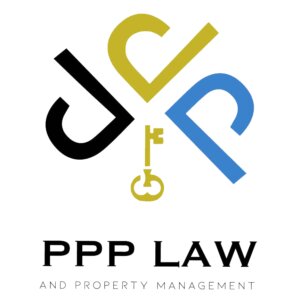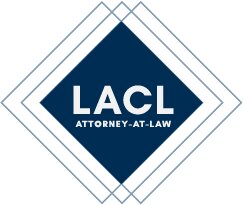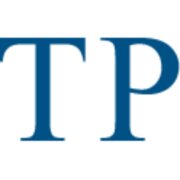Best Communications & Media Law Lawyers in Huai Khwang
Share your needs with us, get contacted by law firms.
Free. Takes 2 min.
List of the best lawyers in Huai Khwang, Thailand
About Communications & Media Law in Huai Khwang, Thailand
Communications & Media Law in Huai Khwang, Bangkok, Thailand, is shaped by national regulations, local ordinances, and international agreements. This area of law covers the creation, distribution, and consumption of information through traditional and digital media. Issues may range from freedom of expression and privacy to copyright, broadcasting rights, telecommunications regulation, and online content moderation. Media entities, journalists, content creators, and everyday internet users must all comply with a complex framework of Thai laws and policies, which are enforced both at the national level and by local authorities within Huai Khwang district.
Why You May Need a Lawyer
There are many scenarios in which individuals or businesses might need legal assistance in Communications & Media Law in Huai Khwang. Common examples include:
- Receiving defamation claims after publishing information online or in print
- Facing allegations of violating Thailand’s Computer Crimes Act by posting or sharing content
- Ensuring compliance with media licensing and broadcast regulations when starting a media outlet or radio station
- Navigating privacy or data protection issues related to online content and advertisement practices
- Protecting intellectual property rights, such as copyright for audio-visual or written content
- Responding to government takedown notices or requests for information removal
- Negotiating contracts for journalists, media professionals, and content creators
- Handling disputes over media ownership or mergers involving media enterprises
Given the complexity of Thai law and the sensitive nature of media-related matters, having legal guidance helps you avoid potential civil and criminal liability, monetary penalties, or reputational damage.
Local Laws Overview
Communications & Media Law in Thailand is primarily governed by several national statutes, but they all apply locally in Huai Khwang. Key legal instruments include:
- The Computer Crimes Act: This law restricts online content and criminalizes posting false, defamatory, or security-threatening information online.
- Broadcasting and Television Business Act: Regulates licensing and standards for television and radio broadcasting.
- Copyright Act: Protects creators’ rights over their works and penalizes unauthorized copying or distribution.
- Personal Data Protection Act (PDPA): Dictates how personal data must be handled by organizations and individuals.
- Penal Code: Contains provisions on defamation, both for spoken (slander) and written (libel) content.
- Press Registration and Print Publication Act: Requires certain publications to be registered and abide by additional standards.
Huai Khwang residents and businesses must observe these laws, which are enforced by entities such as the National Broadcasting and Telecommunications Commission (NBTC), the Ministry of Digital Economy and Society, and local authorities.
Frequently Asked Questions
What counts as defamation under Thai law?
Defamation involves making a statement to a third party that can harm someone’s reputation. Thailand’s Penal Code covers both slander (spoken) and libel (written or online) and carries civil and criminal penalties.
Is it legal to criticize government officials or agencies?
While criticism is generally permitted, certain topics such as the monarchy are protected under Lèse-majesté laws. Criticism should also avoid false information or statements that can harm reputations or national security.
What should I do if I receive a government notice to take down online content?
Consult a lawyer immediately. Prompt and appropriate responses are critical, as failure to comply could result in fines or prosecution.
Do I need permission to use someone else’s content in my media project?
Yes, you usually need the copyright holder’s consent unless your use falls under specific exemptions. Unauthorized use can lead to legal claims.
How does the Computer Crimes Act affect bloggers or social media users?
Posting false or defamatory statements, or sharing illegal content online, can result in criminal charges under this Act. Responsibility often extends to content moderators and platform owners.
Are online advertisements regulated the same as traditional ads?
Both must comply with Thai advertising laws. Online ads have additional data privacy and consumer protection requirements.
How does the Personal Data Protection Act (PDPA) affect media businesses?
Media entities must handle personal data carefully, collecting, storing, and using it according to PDPA’s rules, including getting consent and providing security safeguards.
What are the licensing requirements for starting a radio or TV station?
You must obtain a license from the NBTC, ensure content meets standards, and comply with ownership and content restrictions unique to Thailand.
Can disputes with media organizations be settled out of court?
Many disputes can be resolved through negotiation or mediation, though some issues, especially involving criminal allegations, may require court proceedings.
How does Thai law treat foreign media or journalists operating in Huai Khwang?
Foreign media must adhere to the same laws as local entities. Additional permits, accreditations, and restrictions may apply, especially on political or sensitive subjects.
Additional Resources
For those seeking more information or assistance regarding Communications & Media Law in Huai Khwang, the following resources can be helpful:
- National Broadcasting and Telecommunications Commission (NBTC) - Regulates broadcasting and communications, including licensing and standards.
- Ministry of Digital Economy and Society - Oversees digital content policy and enforcement of the Computer Crimes Act.
- Thai Journalists Association - Provides guidance and advocacy for media professionals.
- Department of Intellectual Property - Handles copyright and related protections for creators.
- Legal Aid Centers - Some universities and local organizations in Bangkok offer legal clinics or advice for qualifying individuals.
Next Steps
If you believe you need legal help with a Communications & Media Law issue in Huai Khwang, consider the following steps:
- Document all relevant materials, including correspondence, publications, online posts, and any official notices.
- Consult with a qualified lawyer experienced in Communications & Media Law. Consider preparing questions or concerns in advance for efficiency.
- Reach out to local legal aid organizations if you require financial assistance.
- Stay updated on legal changes, as Communications & Media Law can evolve rapidly in Thailand.
- Take prompt action to meet any legal deadlines, especially if you have received government communications or face legal claims.
Ultimately, engaging with a lawyer early ensures the best protection for your rights and interests and helps resolve matters with minimal disruption to your personal or professional life.
Lawzana helps you find the best lawyers and law firms in Huai Khwang through a curated and pre-screened list of qualified legal professionals. Our platform offers rankings and detailed profiles of attorneys and law firms, allowing you to compare based on practice areas, including Communications & Media Law, experience, and client feedback.
Each profile includes a description of the firm's areas of practice, client reviews, team members and partners, year of establishment, spoken languages, office locations, contact information, social media presence, and any published articles or resources. Most firms on our platform speak English and are experienced in both local and international legal matters.
Get a quote from top-rated law firms in Huai Khwang, Thailand — quickly, securely, and without unnecessary hassle.
Disclaimer:
The information provided on this page is for general informational purposes only and does not constitute legal advice. While we strive to ensure the accuracy and relevance of the content, legal information may change over time, and interpretations of the law can vary. You should always consult with a qualified legal professional for advice specific to your situation.
We disclaim all liability for actions taken or not taken based on the content of this page. If you believe any information is incorrect or outdated, please contact us, and we will review and update it where appropriate.













